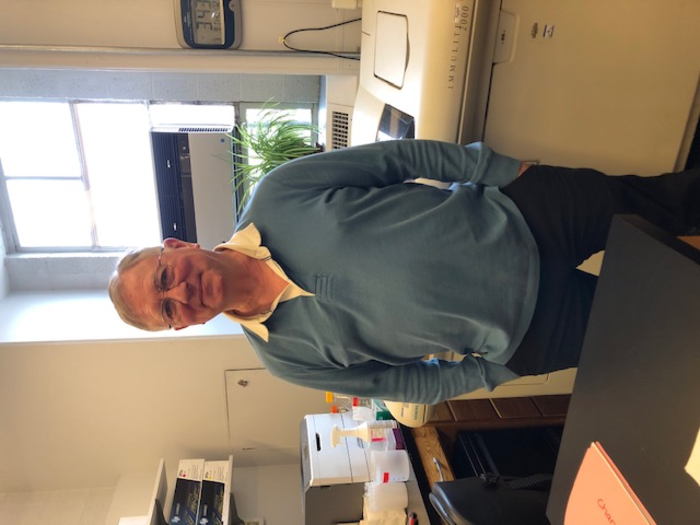Women who are obese and struggling to become pregnant are often advised to lose weight, but a new study finds no fertility benefits from weight loss.

Credit: Courtesy Haisenleder lab
Women who are obese and struggling to become pregnant are often advised to lose weight, but a new study finds no fertility benefits from weight loss.
A randomized study of 379 women with obesity and unexplained infertility found that intensive lifestyle changes that shed pounds led to no better chances of pregnancy and healthy births than simply increasing physical activity without weight loss.
“We have known for decades that obese women often have difficulty getting pregnant,” said researcher Daniel J. Haisenleder, PhD, of the University of Virginia School of Medicine’s Center for Research in Reproduction. “For this reason, many physicians advise weight loss prior to conception. However, there are few studies that have addressed the issue comparing a healthy lifestyle – i.e., exercise – vs. exercise plus weight loss.”
Obesity and Pregnancy
The FIT-PLESE study, conducted at nine academic medical centers across the country, divided participants into two groups: Half the women dieted intensely using meal replacements, medications and increased physical activity. The other half simply increased their physical activity without trying to lose weight. After completing the programs, both groups received three rounds of standard infertility treatments.
Women in the weight-loss program ended up losing, on average, 7% of their body weight, while participants in the exercise-only group typically maintained their weights. But, in the end, there were no significant differences between the two groups in terms of the frequency of healthy births. In total, 23 of the 188 women who completed the 16-week intensive weight-loss program ended up giving birth; among the 191 who completed the exercise-only program, 29 gave birth.
The intensive dieting program did offer health benefits for the women who completed it, however. In addition to dropping pounds, they saw a major decrease in metabolic syndrome, a cluster of conditions that increase the risk for serious health problems such as diabetes, stroke and heart disease.
Based on their findings, Haisenleder and his collaborators conclude that the weight-loss program did not make women more fertile or improve birth outcomes compared with simply exercising. They note the health benefits of weight loss may not translate into better odds of getting pregnant.
“Weight loss improved metabolic health in these subjects. Unfortunately the changes seen did not improve fertility,” Haisenleder said. “Infertility within this population remains an important health issue, and will require further studies to address the problem in the future.”
Findings Published
The researchers have published their findings in the scientific journal PLOS Medicine. The research team consisted of Richard S. Legro, Karl R. Hansen, Michael P. Diamond, Anne Z. Steiner, Christos Coutifaris, Marcelle I. Cedars, Kathleen M. Hoeger, Rebecca Usadi, Erica B. Johnstone, Daniel J. Haisenleder, Robert A. Wild, Kurt T. Barnhart, Jennifer Mersereau, J. C. Trussell, Stephen A. Krawetz, Penny M. Kris-Etherton, David B. Sarwer, Nanette Santoro, Esther Eisenberg, Hao Huang and Heping Zhang for the Reproductive Medicine Network. A full list of the authors’ disclosures is included in the paper, which is open access and available for the public to read for free.
Funding for the research was provided by the National Institutes of Health’s Eunice Kennedy Shriver National Institute of Child Health and Human Development, grants U10 HD38992, U10 HD077680, U10 HD39005, U10 HD077844, U10HD055925, U10 HD27049, U54-HD29834 and R24-HD102061. The project also was supported by the NIH’s National Center for Advancing Translational Sciences, grants UL1 TR002014 and UL1 TR001863. Nutrisystem provided discounted coupons, and Fitbit provided discounted Fitbits for activity monitoring.
To keep up with the latest medical research news from UVA, subscribe to the Making of Medicine blog at http://makingofmedicine.virginia.edu.
Journal
PLoS Medicine
DOI
10.1371/journal.pmed.1003883
Article Publication Date
18-Jan-2022




